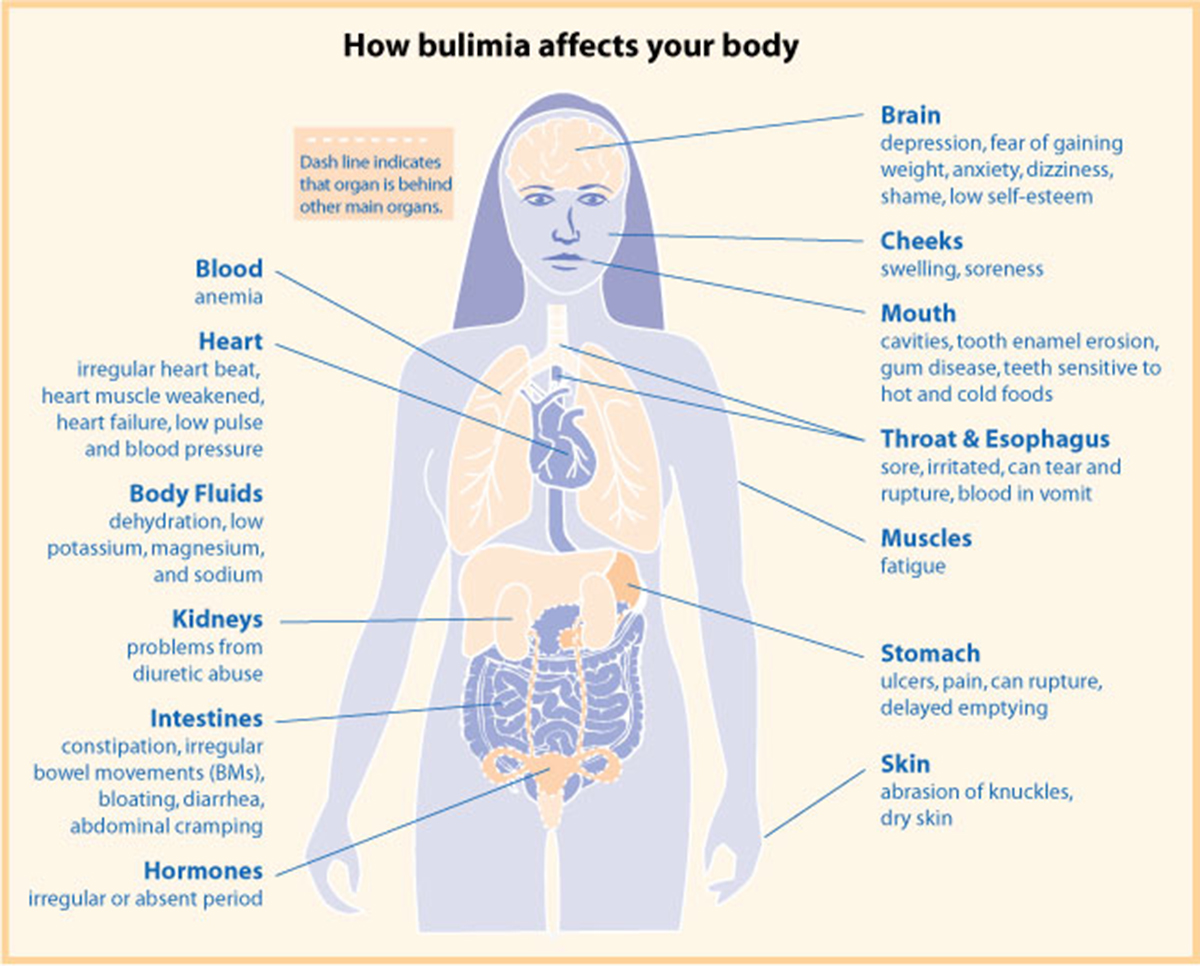
Bulimia nervosa is the medical term for a serious eating disorder when a person first eats huge quantities of food and then eliminates it in an unhealthy manner, for example, by forcing himself/herself to vomit or to exercise much more than it is normal. The females, especially the adolescents, are suffering from this condition since they are more concerned about their looks, weight and body figure than the males.
Symptoms of bulimia nervosa
The people who suffer from bulimia nervosa have a feeling that they are incapable to control their eating behavior and they usually eat until they feel pain in the stomach, after which they urge themselves to vomit. These people also tend to misuse laxatives and diuretics and exercise more often than it is normal. The people with this condition are preoccupied with their appearance, weight and the body shape, and they do not have a positive body image. They always go to a bathroom after the meals, usually to vomit, and they also have abnormal bowel functioning.
It is observed that the damaged teeth and gums, sores on the mouth, depression and anxiety as well as dehydration and irregular heartbeats are some of the signs of bulimia nervosa as well.
Causes of bulimia nervosa
Bulimia nervosa can be purging bulimia and non-purging bulimia. Those people who suffer from purging bulimia tend to eliminate the excess calories through self-induced vomiting and with using the laxatives and diuretics, while the people with non-purging bulimia try to get rid of the calories by overexercising and fasting.
Even though the main culprit for the occurrence of bulimia nervosa is not found yet, there are several contributing factors.
Certain genes may be responsible for the development of eating disorders including bulimia nervosa. Furthermore, dieting and overexercises may also be potential causes for the incidence of this eating disorder. Certain psychological, as well as emotional problems, like low self-esteem, troubled relationships and perfectionism may also lead to the appearance of bulimia nervosa.
Treatment for bulimia nervosa
Bulimia nervosa is potentially a life threatening disorder and therefore, it should be treated by some of the available treatment methods for this eating disorder. In the majority of cases, the patients are treated by psychotherapy and antidepressants, but besides that, the patients should be taught how to restore the body weight after the considerable weight loss, which is why the nutrition education is necessary. Hospitalization of the patients is necessary only in the severe cases of this eating disorder.
















Your thoughts on this
Loading...